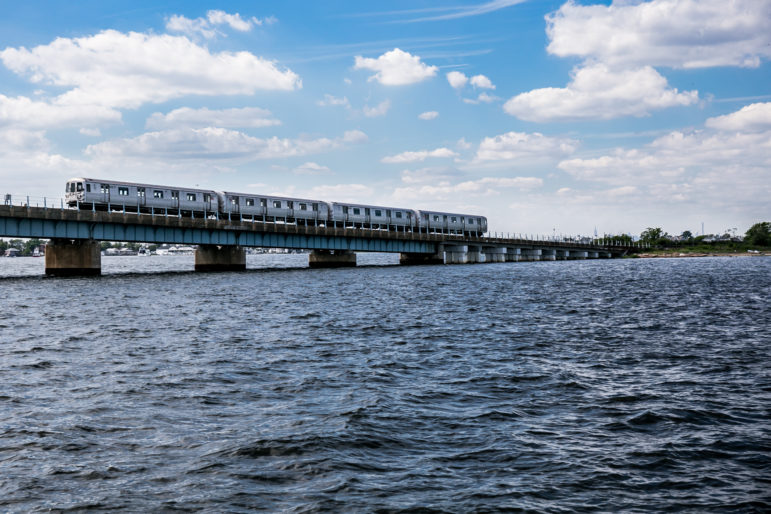‘Building safe and healthy communities with clean air, clean water, good-paying jobs and access to nature must be the focus of our state’s climate plans. The $3 billion Environmental Bond Act can help pave the way.’

Adi Talwar
The Environmental Bond Act would fund flood-mitigation work and other resiliency projects to assist communities impacted by environmental injustice.New Yorkers have endured a lot in the past year while battling the COVID-19 pandemic and the resulting economic crisis, which have disproportionately harmed communities of color. It will take years to recover from these crises, and we need to secure funding and enact policies to get New Yorkers back to work and enable every community to heal and rebuild, starting with the hardest hit communities.
In addition to our public health crisis, the climate crisis is intensifying. Each step we take right now can help prepare us for the reality we already face—stronger storms, rising seas, and extreme heat—or can continue to endanger our nation’s most vulnerable. Communities of color are overwhelmingly more susceptible to the harms of climate change, specifically its effects on public health. Building safe and healthy communities with clean air, clean water, good-paying jobs and access to nature must be the focus of our state’s climate plans.
The $3 billion Environmental Bond Act can help pave the way. If placed on November’s ballot by the State Legislature, the Bond Act would put thousands of people back to work in good union jobs, reduce harmful pollution, safeguard clean water, and enable our towns and cities to reduce local climate risks. In the last 10 years, every county in the state has been hit by severe storms and flooding.
 CityViews are readers’ opinions, not those of City Limits. Add your voice today!
CityViews are readers’ opinions, not those of City Limits. Add your voice today!
Rebuilding after disasters takes significant time and money, but the emotional turmoil and loss people experience is even greater. Low-income communities face the longest recovery time and most grueling circumstances. For example, NYCHA buildings in the Rockaways are still recovering from Superstorm Sandy in 2012, a reality that is all too common in communities of color. Additionally, parks in environmental justice communities like Harlem haven’t received proper maintenance or quality improvement that they deserve. The Environmental Bond Act would help address our public health crisis by reducing pollution and our climate crisis by helping communities prepare for extreme heatwaves and frequent flooding.
The Bond Act would also act as a stimulus and much-needed infrastructure program. In 2020, COVID-19 caused 1 million New Yorkers to lose their jobs, and we’re still fighting to get our economy back on track. An AECOM report found that the Bond Act can support 65,000 jobs and result in $6.7 billion in project spending. We must invest in New York’s long-term health.
Importantly, every single aspect of the Bond Act would create opportunities in the construction industry. These would be union jobs with good-pay and benefits, jobs that strengthen local economies in every corner of the state. Projects would include replacing lead pipes, building and updating parks, modernizing water and wastewater infrastructure, and increasing building weatherization and efficiency. This is exactly the kind of economic stimulus we need; programs that put people back to work in jobs that can support families and address our most pressing problems. Moreover, this infrastructure should be built by the very same people who will benefit from its long-term success.
Every investment we make now has the chance to benefit New York for generations to come. Following a year of heartbreak and loss, it’s time to invest in the future we want to create. We’re calling on the New York Legislature to reinstate the Environmental Bond Act this year. We need to secure this funding to help protect the health, safety, and prosperity of all New Yorkers.
Sonal Jessel is policy director for WE ACT for Environmental Justice; Daniel Ortega runs community affairs at Engineers Labor Employer Cooperative Local 825.
Read more on this topic:
‘Restore Mother Nature’ Bond Act Won’t Be on This Year’s Ballot








